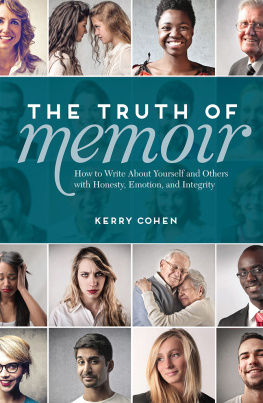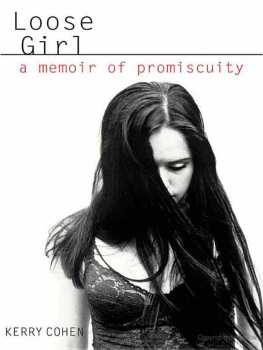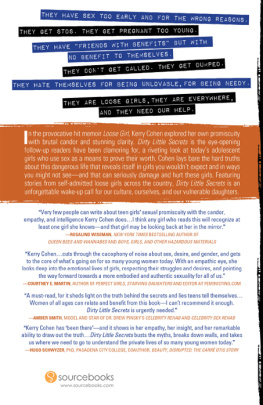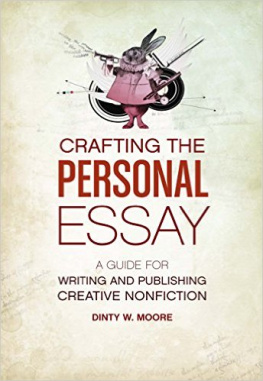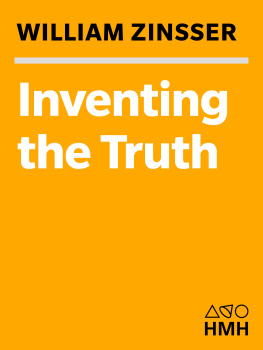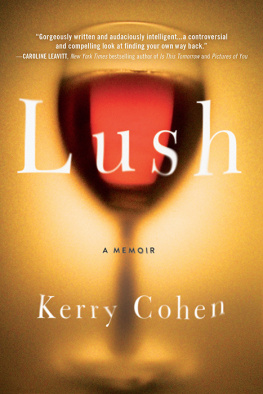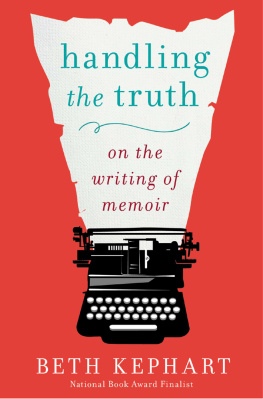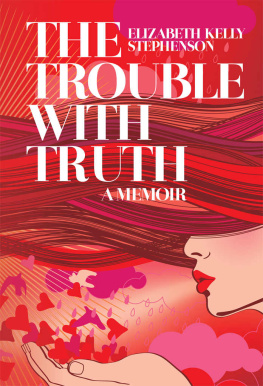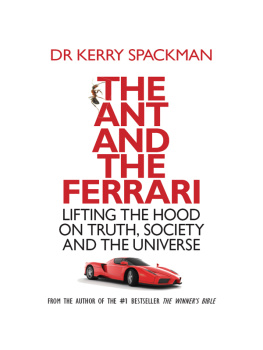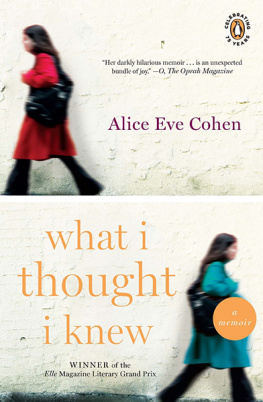Contents
Guide
THE TRUTH OF MEMOIR
How to Write About Yourself and Others with Honesty, Emotion, and Integrity
KERRY COHEN

www.writersdigest.com
Cincinnati, Ohio
Dedication
For everyone who has a story aching to be told.
Table of Contents
CHAPTER ONE
truth and dare
ARE YOU READY TO WRITE A MEMOIR?
CHAPTER TWO
blood on the page
WRITING ABOUT FAMILY
CHAPTER THREE
because i said so
WRITING ABOUT CHILDREN AND THE DISABLED
CHAPTER FOUR
dangerous liaisons
WRITING ABOUT SPOUSES, FRIENDS, AND EXES
CHAPTER FIVE
shame me twice
WRITING ABOUT SEX, DRUGS, AND BAD BEHAVIOR
CHAPTER SIX
just between us
SECRET TELLING
CHAPTER SEVEN
talk to my lawyer
THE LEGALITIES OF WRITING ABOUT OTHERS
CHAPTER EIGHT
expect the unexpected
THE MEDIAS RESPONSE TO YOUR MEMOIR
Introduction
A man I know wrote an essay about friendships after divorce that was published in a national online magazine. It doesnt matter whether the essay was well written or achieved its intentions or furthered thought on its subject. Those parts are at least somewhat subjective. Think, for instance, of Jonathan Franzen. Do you love his work? Do you not understand why others love his work? These types of reader perceptions dont matter for the purposes of this book. What does matter is that the essay the man published led to him losing his job. While he received many messages from people who found his essay helpful, moving, and relatable, a group of people in his local writing community were outraged because he wrote about three of them in order to further his point. Their names were changed, and no one outside of the local writing community would be able to infer their identities. But people complained and some made threats, and eventually the board of the nonprofit he worked for fired him, largely because of the essay.
A woman I know wrote an essay about her affair. She and her husband were still married, but she believed that the story of her affair and how she chose to end it was important for others, for the choices they might make. She believed that the realizations she had come to, having gone through the affair, were indispensable for others in similar situations. She published the essay obscurely, and she truly hoped her husband wouldnt find it. He wasnt much of a reader. He didnt find it. But someone who knew him did find it, and that person forwarded the essay to him in an e-mail. The writer and her husband are now divorced, and there are few things she regrets more in her life than having published that essay.
I have a story, too, albeit a very different one. I wrote my memoir Loose Girl: A Memoir of Promiscuity out of need. I could not not write it. Only after I sent it to my agent and he started shopping the book to editors did it occur to me what Id done. I wasnt worried about the sex I discussed. I was worried about my parents. My God, my parents! Id written as compassionately as I could about them, but they had both made terrible mistakes as parents. They were both very limited in their parenting, and as an adolescent, that affected me pretty seriously.
When the book was in review-copy form, I sent one to each of my divorced parents with notes of warning. I promised them that I had no intention of hurting them by writing the book. I explained that memoir is a story of ones own memories, and I did my best to stay true to my story, even if it hurt them and even if their memories were different from mine. My father was the first to get back to me. He joked, Why would I read this book? Its a story of my daughters sex life, and I come off like a jerk. He said it with a smile. It was his way of giving me his blessing. My mother took a different route. She read the book, and she surprised me by apologizing for that time in our lives. It was the beginning of a gradual openness in our conversations. It occurs to me now that had I not taken the risk of publishing Loose Girl, my mother and I never would have reached our current level of intimacy.
The power of words is astounding. They are just words: letters grouped together to make meanings that are knitted together to make a story. Memoir is really just a story about you and ultimately about others in your life. Words have the potential to injure or incense the people who are most important to you. But they can also transform lives positively.
Since I started giving talks and readings as a memoirist, and as I began teaching the craft of memoir, listeners and students continue to want most to know about this phenomena of writing about others. How do I write about other people without hurting them, without losing people or things I love? It would be easy to assume that one should write whatever they have to write, that they should publish whatever they want to put out there. But the truth is never so simple. Over the years, students have shared some of the terrifying potential consequences of publishing their stories. An ex-husband could take full custody of the children. A father could sue for millions. A daughter may estrange herself from her mother. The question is not about whether you, as a writer, have a right to tell your story. The question is whether art is more important than personal loss, whether the benefit to your readers, who are mostly complete strangers, is more important than someone you love, or even someone you dont love, getting emotionally hurt.
When students and readers ask me these questions, I often feel at a loss as to how to answer. The truth is that I dont know. Perhaps I lucked out when my parents supported me after Loose Girl came out. I still dont know how the book might affect my sons, whose friends might get wind that their mother wrote a book about sex. I also dont know how my second memoir about my autistic son will affect him or his brother as they grow. These sorts of questions tumble around in my mind, even as I move on to my third memoir.
I once told my students that they are hurting other people all the time anyway, so why not make art as they do? But Im not sure that accepting the possibility that you will hurt people is the only solution to the problem of writing about other people. I believe that, like most problems, there are many approaches to handling the question of whether and how to write about other people, which led me to write this book. Herein, I interviewed close to sixty memoirists residing in the United States about how they dealt with the process of writing about those close to them. Their answers were enlightening, sometimes surprising, and always helpful. And the conversations were rich with tremendous passion for the craft of memoir.
We have no rule book for how to handle writing about other people, and certainly this book isnt one either. But in this book you will find the words and experiences of memoirists who have grappled with the myriad of questions and issues inherent to writing about others. Some may choose to read the book in its entirety, relishing and pulling wisdom from the many stories that memoirists shared for this book. Others may choose to read select chapters based on their own writing struggles. The book is broken down by specific subjects that memoirs may address: family, lovers and spouses, friends, children, sex and drugs. Included are thought-provoking essays by other writers about what happened to them as they wrote, completed, and published their memoirs and personal essays. Ive also included a chapter that explores the legalities of including other people in your writing. At the end of each chapter, youll find questions and exercises to help you explore your own memoir-writing process.

